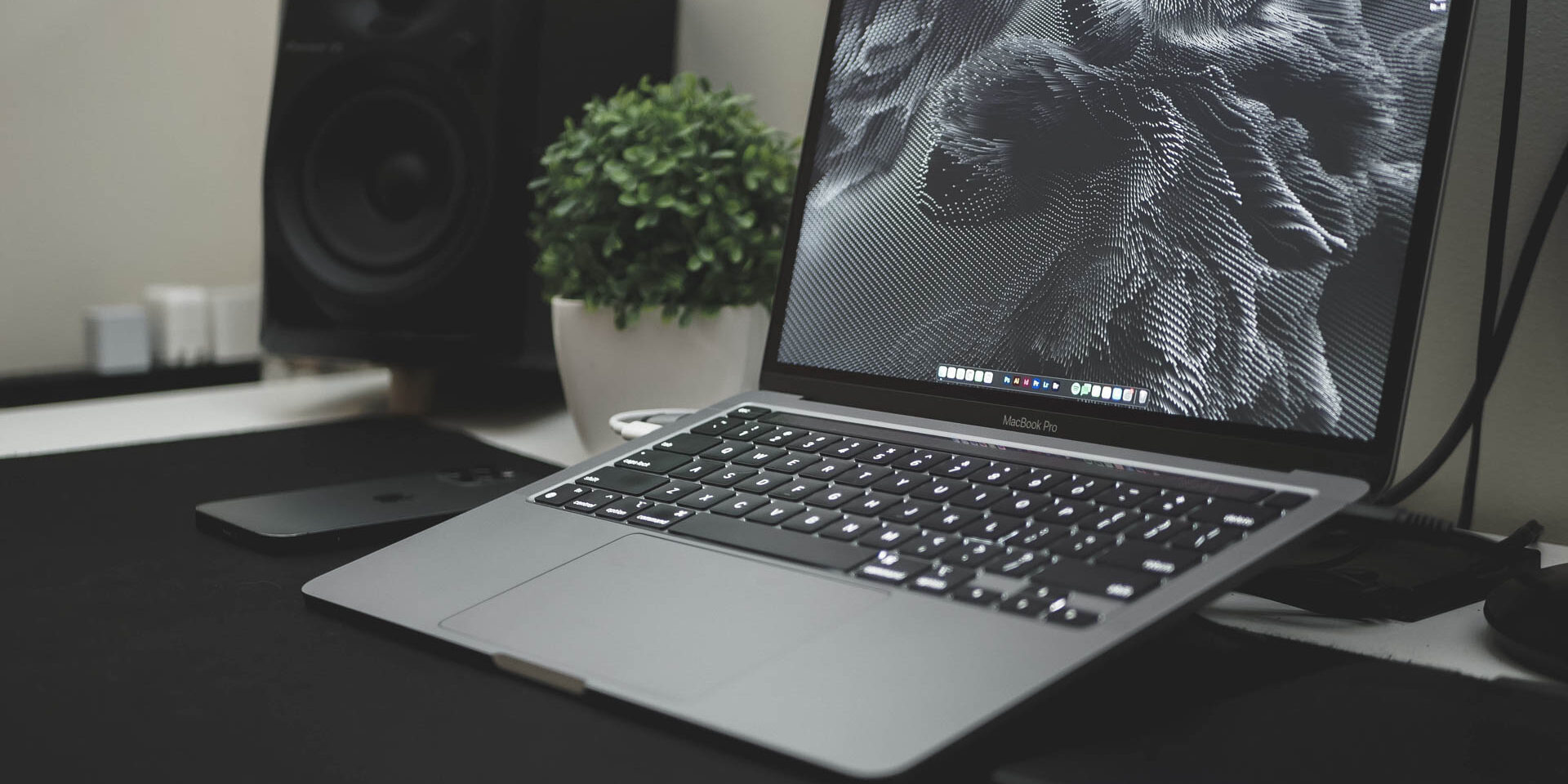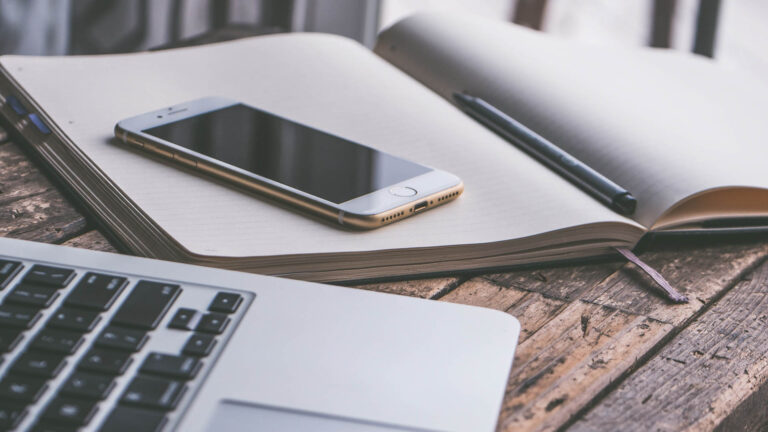As job seekers, we all know the importance of a good resume and cover letter to land our dream job. However, the interview process is equally crucial. This is where employers get to learn more about us and assess if we would be a good fit for their team.
In this article, we will explore 22 tips and tricks on how to ace your job interview. These tips are designed to help you overcome your nerves, put your best foot forward, and impress your potential employer. Whether it’s your first job interview or your hundredth, these tips will help you stand out from the crowd and increase your chances of securing that coveted job offer. So, whether you’re preparing for an upcoming interview or just curious to learn more, read on to discover the secrets to acing your job interview.
Research the Company and the Interviewer
One of the most critical aspects of acing a job interview is researching the company and the interviewer. In this section, we’ll discuss how to find information about the company, what to look for during research, and tips for finding out about the interviewer.
How to Find Information about the Company
There are many resources available that can provide you with valuable information about the company you’re applying to, including:
- The company website: This is an excellent place to start your research. Look for information about the company’s mission, values, products/services, and any recent news or achievements.
- Social media: Check out the company’s social media profiles for updates, news, and insights into company culture.
- Glassdoor: Glassdoor is a site that provides company reviews, salaries, and interview questions from current and former employees.
- LinkedIn: Look up the company on LinkedIn to see who works there, their titles, and what they post.
What to Look for During Research
When researching the company, keep an eye out for the following:


- Company culture: What are the company’s values, and how do they align with yours? What is the work environment like?
- Recent news or achievements: Have they received any awards or accolades? Have they recently launched a new product? This knowledge can help you tailor your interview responses.
- Competitors: Who are the company’s competitors? What sets the company apart?
Tips for Finding out about the Interviewer
It’s always beneficial to know a little bit about your interviewer before the meeting. Here are a few tips for finding out about the interviewer:
- LinkedIn: Look up the interviewer on LinkedIn to see their background, job history, and any mutual connections you might have.
- Google: Do a quick Google search on the interviewer’s name to see if they’ve been mentioned in any articles or interviews.
- Company website: Check the company’s website to see if the interviewer’s name and job title are listed.
By researching the company and the interviewer, you’ll be better equipped to ask relevant questions and showcase your knowledge during the interview. Remember, the more you know, the more confident and prepared you’ll feel on the big day.
Review Common Interview Questions
One of the keys to acing your job interview is being prepared for the questions that may be asked. Here we’ll provide an overview of common interview questions, strategies to tackle difficult questions, and examples of questions and suggested answers to help you land the job you want.
An overview of common interview questions
Some of the most common interview questions include:
- Tell me about yourself.
- Why are you interested in this position?
- What are your strengths and weaknesses?
- What do you know about our company?
- Where do you see yourself in five years?
- Why should we hire you?
- What do you like to do outside of work?
- How do you handle conflicts?
- Can you tell me about a challenging work situation you faced and how you overcame it?
Strategies for answering difficult questions
Sometimes interviewers will ask difficult questions to test your critical thinking skills or see how you handle pressure. To answer these kinds of questions with confidence, try using these strategies:
- Take a deep breath and pause before answering.
- Make sure you understand the question before you respond.
- Use specific examples to illustrate your answer.
- Be honest, but also tactful.
- Don’t be afraid to ask for clarification if you don’t understand the question.
Examples of questions and suggested answers
To help you prepare for your interview, we’ve provided some typical questions and suggested answers:


Question: Tell me about yourself.
Suggested answer: I’m a recent graduate with a degree in marketing. I’ve completed several internships and projects in the field and am excited to apply my skills to a full-time job. Outside of work, I enjoy hiking and reading.
Question: What are your strengths and weaknesses?
Suggested answer: My strengths include attention to detail and the ability to work well under pressure. One weakness I’m currently working on is public speaking, but I’m taking steps to improve through practice and training.
Question: Where do you see yourself in five years?


Suggested answer: In five years, I hope to have gained more experience in my field and taken on more leadership roles. My ultimate goal is to become a marketing manager and make a difference in the industry.
Remember, the key to a successful interview is to be prepared and confident. By reviewing common interview questions, practicing your responses, and using the strategies listed above, you’ll be well on your way to acing your job interview.
Practice and Prepare for the Interview
Effective preparation is key to acing a job interview. To increase your chances of success, you should consider practicing for the interview by doing role-playing and mock interviews. This will enable you to get an insight into what potential questions you might face and how to provide effective responses tailored to the job and industry.
In addition to role-playing and mock interviews, you should also prepare responses to common interview questions. Some of the most common interview questions include “Tell us about yourself,” “What are your greatest strengths and weaknesses?”, “Why do you want to work for our company?”, and “Where do you see yourself in five years?”. Preparing responses to these common interview questions will give you confidence and help you stay calm and focused during the interview.
If you want to boost your interview skills, tips for practicing are to rehearse in front of family and friends, use a mirror, record yourself and watch the playback, and use online resources such as virtual mock interviews and feedback tools. You should also practice your body language, eye contact, and tone of voice to ensure a positive impression during the interview.
Practicing and preparation are vital when it comes to acing a job interview. You should invest time in role-playing and mock interviews, preparing effective responses to interview questions, and practicing using various resources. This will help you to be confident, calm, and showcase your knowledge and skills effectively during the interview. Good luck!
Dress for Success
First impressions matter, and what you wear to a job interview can have a big impact on how an interviewer perceives you. Dressing appropriately for an interview can make you feel confident and professional, and convey that you take the opportunity seriously. Here are some guidelines to help you make a great impression:


Importance of First Impressions
The way you dress for an interview is a reflection of your personal brand, which is a combination of your skills, experience, and personality. A professional and polished appearance can help you create a positive first impression and instill confidence in the interviewer. On the other hand, dressing inappropriately or sloppily can send a message that you don’t care about the opportunity and can hurt your chances of being hired.
Dress Code Guidelines for Different Types of Interviews
Dress codes can vary depending on the industry, company culture, and the nature of the job for which you are interviewing. Here are some general guidelines to follow based on the type of interview:
- Corporate Interviews: For interviews in large corporations, business professional attire is usually the norm. This includes a suit, tie, dress shirt, and dress shoes. Avoid flashy jewelry, heavy makeup, and bright colors.
- Casual Interviews: Dressing casually is acceptable for interviews in startup companies or creative industries. However, you still need to look put-together and professional. Opt for a pair of khakis or dark jeans, a dress shirt or blouse, and dress shoes or boots.
- Virtual Interviews: Even though you’re not physically on-site, it’s still important to dress professionally for virtual interviews. Dress as you would for an in-person interview, but also pay attention to your background and surroundings.
How to Make Sure Your Outfit Is Appropriate
Choosing the right outfit for an interview can be a daunting task, but there are some simple steps you can follow to ensure that you look your best:
- Research the company: Look into the company’s culture and dress code before the interview. Check out their website or social media accounts and see if they have any pictures or videos of their employees. This can give you a good idea of what is appropriate to wear.
- Pick solid, neutral colors: Opt for classic, solid colors like navy, gray, black, or white. Avoid anything too flashy or trendy.
- Make sure your clothes fit well: Ill-fitting clothes can make you look sloppy and unprofessional. Take the time to try on your outfit before the interview and make sure it flatters your body type.
- Pay attention to grooming: Make sure your hair is neat and tidy, your nails are clean, and your shoes are polished. Additionally, avoid strong perfumes or colognes, since some people may be sensitive to strong scents.
By following these guidelines, you can create a professional and polished look that will make a great first impression at your next job interview.
Arrive on Time and Prepared
One of the most crucial aspects of acing your job interview is to arrive on time and prepared. Punctuality is of utmost importance in the professional world, and being late for an interview can often leave a negative impression on your interviewer. Here are some tips and tricks to make sure you arrive on time and prepared for your upcoming interview.
Importance of Punctuality
Arriving on time is the first step towards showing your interviewer that you’re serious about the job and value their time. Being late can leave a negative impression on your interviewer and can potentially ruin your chances of getting the job. In many cases, hiring managers will take your punctuality into consideration when making a hiring decision.


Tips for Planning Your Journey
Planning your journey to the interview location can help you to arrive on time and in a relaxed state of mind. Here are some tips to help you plan your journey:
- Research the location: Look up the location of the interview on Google Maps or other mapping software. Make sure you have the correct address and note how long it will take you to get there.
- Leave early: Leave enough time in your schedule to allow for unexpected delays, such as heavy traffic or public transport delays.
- Test your route: If possible, test your route to the interview location in advance to ensure that you know where you’re going and how long it will take to get there.
- Consider the weather: Be prepared for inclement weather by checking the forecast and dressing appropriately.
By planning your journey, you can arrive at your interview location feeling calm, collected, and prepared.
What to Bring to the Interview
Preparing a checklist of items to bring to the interview can help you avoid any last-minute surprises. Here are some essential items to bring with you:
- Copies of your resume: Bring at least two copies of your resume, one for yourself and one for the interviewer.
- List of references: Bring a list of at least three professional references with contact information.
- Pen and notepad: Bring a pen and notepad to take notes during the interview.
- Portfolio: If relevant, bring a portfolio of your work to showcase your skills and experience.
- Business card: Consider bringing a business card with your contact information to leave behind with the interviewer.
Arriving on time and prepared is crucial to acing your job interview. By emphasizing the importance of punctuality, planning your journey, and preparing a checklist of essential items to bring with you, you can increase your chances of landing your dream job.
Body Language and Positive Attitude
When it comes to acing a job interview, non-verbal cues are just as important as what you say. Your body language can give insight into your confidence, professionalism, and sincerity. Therefore, it is crucial to pay attention to your posture, eye contact, facial expression, and gestures.
To establish a connection with the interviewer, you should maintain a warm and open demeanor. Begin by greeting them with a firm handshake and a smile. Throughout the interview, try to maintain eye contact with the interviewer without staring them down. This shows that you are interested in the conversation and actively engaged in the interview process.


Additionally, mirroring the interviewer’s body language can help establish a connection. Pay attention to their posture, gestures, and tone of voice, and try to respond in kind. This will help build rapport and make the conversation more comfortable.
Maintaining a positive attitude throughout the interview is crucial, even if you are feeling nervous or uncertain. Confidence is key, so take deep breaths and remind yourself of your qualifications and accomplishments. A positive attitude also shows that you are resilient and able to handle challenges with grace.
Here are some tips for maintaining a positive attitude throughout the interview:
- Prepare in advance by researching the company and practicing common interview questions.
- Dress professionally and arrive early to avoid any last-minute stress.
- Focus on your strengths and highlight how they align with the job requirements.
- Avoid negative self-talk or criticizing previous employers or colleagues.
- Finally, remember to smile and thank the interviewer for their time and consideration.
By paying attention to your non-verbal cues and maintaining a positive attitude, you can make a lasting impression and increase your chances of getting the job.
During the Interview
Congratulations! You have made it to the interview stage. This is your chance to shine and impress the hiring manager with your skills and experience. In this section, we will discuss some tips on how to handle yourself during the interview.


Steps to take when you arrive
First impressions are important, so it’s crucial to arrive on time or even a few minutes early. Plan your route and leave with plenty of time to spare to account for traffic or unexpected delays. When you arrive, make sure to check in with the receptionist or whoever is in charge of interviews. Be polite and friendly to everyone you meet, as they may be asked for feedback on your behavior.
How to initiate small talk
Small talk can help break the ice and put everyone at ease. It’s always a good idea to have a few open-ended questions in mind, such as asking about the company culture or how the interviewer got started in their career. Try to find common ground and build a rapport, but remember to keep things professional and avoid controversial topics.
Strategies for answering questions effectively
The interviewer will likely ask you a variety of questions to gauge your skills, experience, and personality. The key is to answer them confidently and concisely, without rambling or oversharing. Use the STAR method (Situation, Task, Action, Result) to structure your answers and provide specific examples. Don’t be afraid to ask for clarification if you don’t understand a question, and take a moment to gather your thoughts before responding.
How to follow up after the interview
After the interview is over, it’s essential to follow up with a thank-you note or email. This shows that you appreciate the interviewer’s time and are still interested in the position. Keep it brief and personalized, mentioning specific points from the conversation. If you don’t hear back after a week or so, you can send a polite follow-up email to inquire about the status of your application.
The interview is your chance to show the hiring manager that you are the best candidate for the job. Arrive on time, make small talk, answer questions effectively, and follow up afterward. With these tips and tricks, you’re one step closer to acing your interview and landing your dream job. Good luck!
Handling Difficult Interviews
Interviews can be stressful and nerve-wracking experiences, especially when difficult questions are thrown into the mix. In this section, we’ll discuss how to handle stress and anxiety during the interview, provide tips for answering curveball questions, and share examples of difficult interviews and how to handle them.
How to Handle Stress and Anxiety During the Interview
It’s natural to feel stressed or anxious during an interview, but it’s important to manage these feelings to avoid them affecting your performance. Here are some tips:
- Prepare for the interview. Do your research on the company and the role, and practice your answers to common questions. The more prepared you are, the more confident you will feel.
- Take deep breaths. If you start to feel overwhelmed, take a few deep breaths and focus on slowing your breathing down. This can help reduce feelings of stress and anxiety.
- Visualize success. Before the interview, close your eyes and visualize yourself acing the interview. Imagine yourself calmly answering questions and receiving positive feedback.
- Self-talk. Use positive affirmations to boost your confidence. Tell yourself that you are qualified for the position and that you have a lot to offer.
Tips for Answering Curveball Questions
Curveball questions are those unexpected, tough questions that can catch you off guard. Here are some tips for handling them:
- Pause and take a moment to think. Don’t feel like you have to answer immediately. Take a moment to gather your thoughts and compose your answer.
- Ask for clarification. If you’re not sure what the interviewer is asking, don’t be afraid to ask for clarification. It’s better to fully understand the question than to give a vague or incorrect answer.
- Stay calm and focused. Remember to stay calm and focused, even if the question is difficult. Take a deep breath and think about how you can answer the question to the best of your ability.
Examples of Difficult Interviews and How to Handle Them
Here are some examples of difficult interviews and how to handle them:
-
The Stress Interview. Some interviewers may intentionally try to stress you out with aggressive or negative comments. Remember that this is part of the interview process and don’t take it personally. Stay calm, maintain eye contact, and answer the questions to the best of your ability.
-
The Panel Interview. This is when you are interviewed by a group of people at once. It can be overwhelming, but try to address each member of the panel individually and maintain eye contact with each person.
-
The Behavioral Interview. Behavioral interviews focus on past experiences and how you handled certain situations. Make sure you have specific examples ready to demonstrate your skills and experience.
Handling difficult interviews is all about preparation, staying calm, and staying focused.
Ending the Interview and Next Steps
Congratulations! You’ve made it through the interview, and now it’s time to wrap things up. The way you close out the interview can leave a lasting impression on the interviewer and can even impact your chances of getting the job. Here are some tips to help you end the interview on a positive note:
How to Close the Interview
1. Ask about the next steps
To show your interest in the position, ask about the next steps in the hiring process. This will also give you an idea of the timeline for when you can expect to hear back.
2. Express enthusiasm
Let the interviewer know that you’re excited about the opportunity to join the team. This will leave a positive impression and show that you’re truly invested in the job.
3. Ask if they need any additional information
If there are any questions or concerns the interviewer has regarding your qualifications or work experience, take the opportunity to ask and clarify any doubts.
How to Thank the Interviewer
It’s important to thank the interviewer for taking the time to meet with you. Here’s how to do so effectively:
1. Start with a genuine expression of gratitude
Express your gratitude for the time the interviewer took to meet with you and give you the opportunity to learn more about the company and the position.
2. Mention something specific from the interview
A great way to leave a lasting impression is to bring up something specific that was discussed in the interview. This shows that you were actively listening and engaged throughout the conversation.
3. Restate your interest in the position
Make sure the interviewer knows that you are still interested in the position and that you’d be thrilled to join the team.
Tips for Following Up after the Interview
After the interview, it’s important to follow up with the interviewer to reiterate your interest and keep yourself top-of-mind. Here are some tips to keep in mind:
1. Send a thank-you note
Within 24 hours of the interview, send a thank-you note to the interviewer expressing your gratitude for the opportunity and reiterating your interest in the position.
2. Highlight points from the interview
In your thank-you note, bring up points from the interview and reaffirm why you would make a good fit for the position.
3. Be patient
While it can be tempting to follow up multiple times to check on the status of your application, it’s important to be patient and wait for the interviewer to get back to you.
4. Keep in touch
If you don’t hear back after following up, don’t lose hope. Keep in touch and periodically check in to show your continued interest in the position.
By following these tips, you’ll be able to close out your interview on a positive note and increase your chances of landing the job. Good luck!
Related Articles
- Fundamentals of Key Performance Indicators: Beginners Guide
- Marketing Resume: Examples and Guide for 2023
- Telecommuting 101: Basics of Working Remotely in 2023
- Why Did You Choose This Career? 5 Tips for Answering
- 20 Bookkeeper Resume Examples & Guide for 2023








